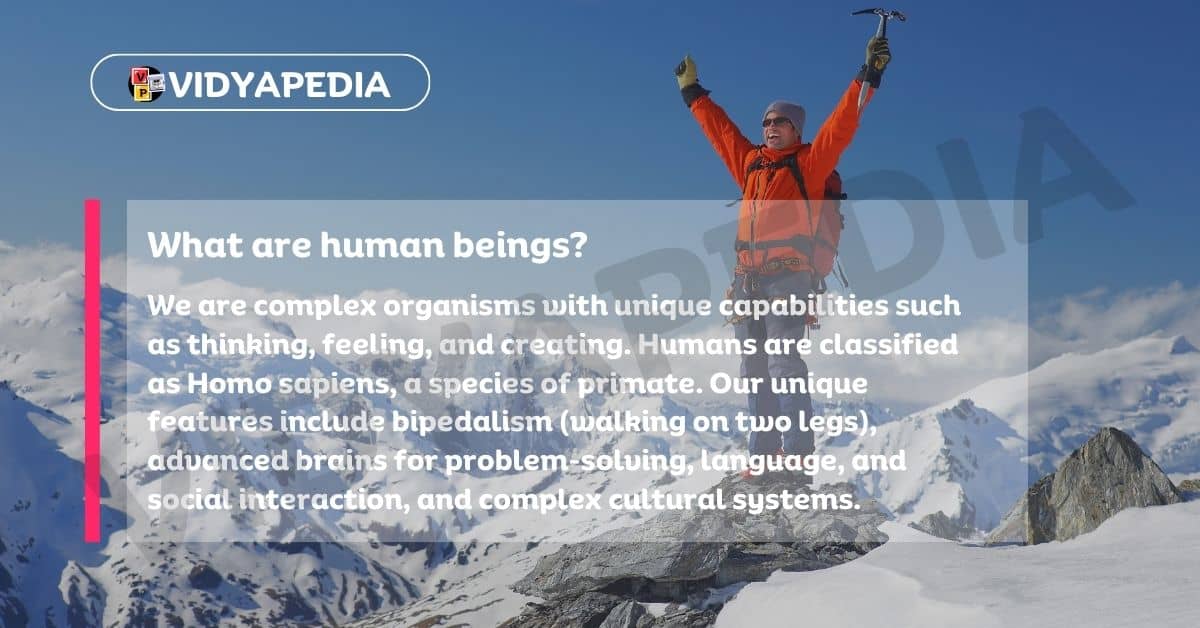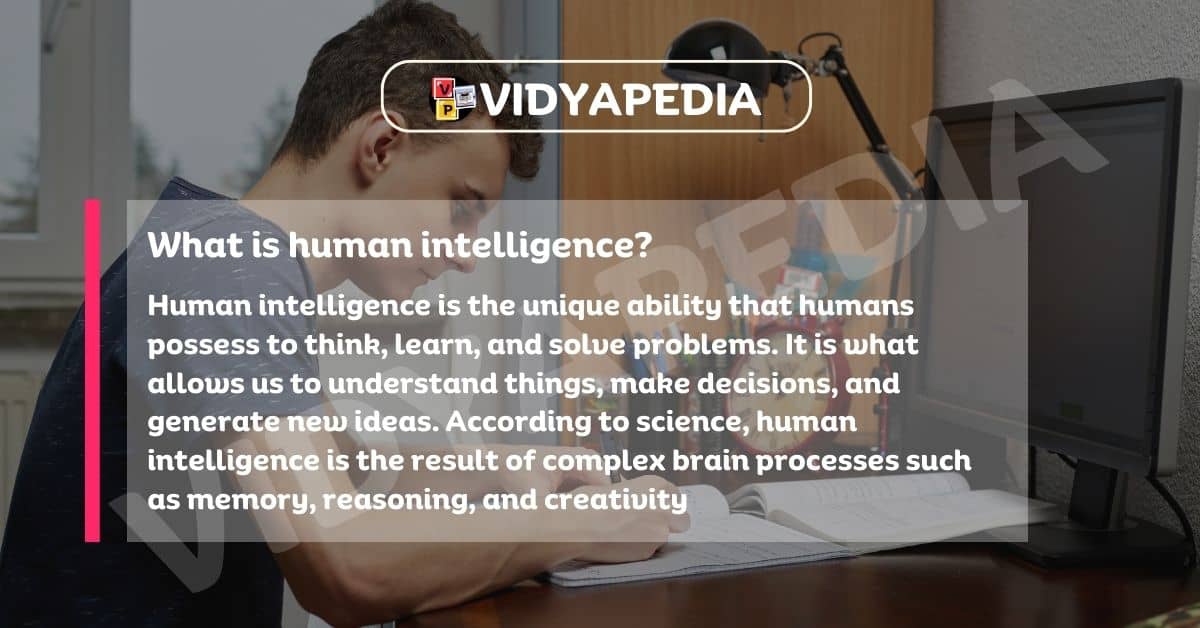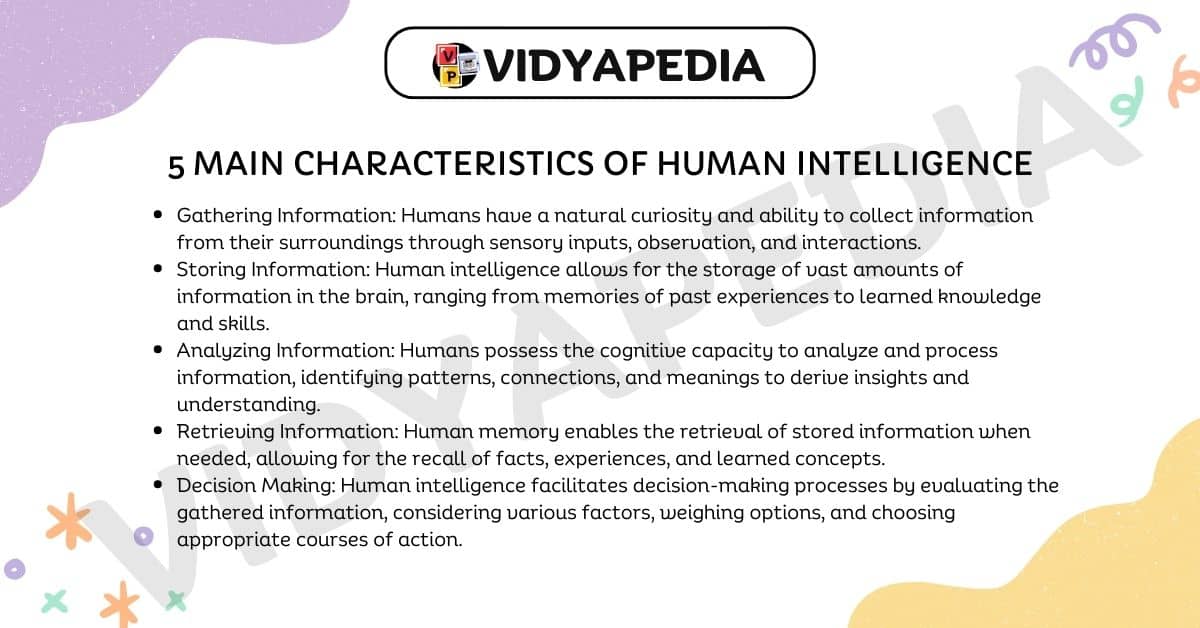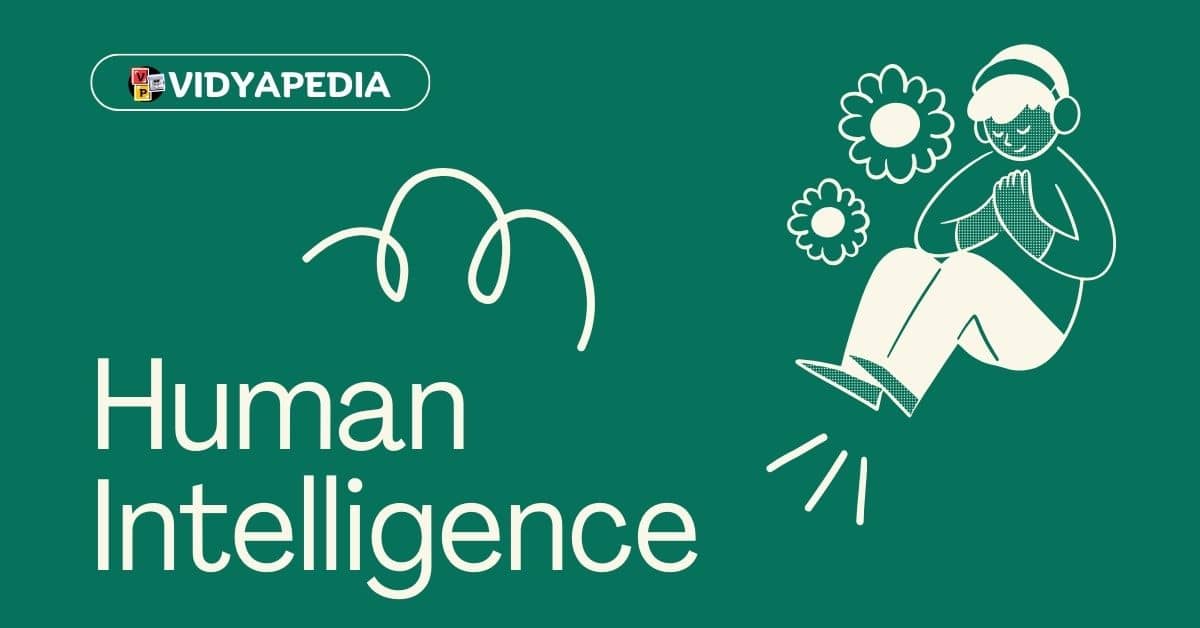What are human beings?

We are animals having special abilities to think, walk , feel something and the ability to create. we are those organisms which are totally unique in all of the animals species. As a human or human being anyone is completely able to do tasks given to him or her. We are hamo sapiens. Our brain is so advanced to solve complex problems and to make unique technology. Everyone has different colours, height, hair , eyes , and structure, so on. we always try to adapt our environment and try to be in our comfort zone.
Simply we can say , we are special animal species having special abilities to adapt a variety of evolution.
Read About Robotics
What is human intelligence?

Human intelligence is our ability based on our IQ level to do something. It can be defined in terms of thinking, learning, solving and creating.it can vary person to person that how they solve the problem, if someone is able to do anything fast then his / her iq is more .But according to science our brain is having memory going with millions of neurons. This memory helps us to remember the knowledge and by using that we improve ourselves and solve the problem.
5 Main Characteristics of Human Intelligence

Sure, here’s a brief explanation of those characteristics brought about by humans:
- Gathering Information: we humans always try to gather the information from our surroundings because it is our nature. By watching or looking we always predict something and then stores.
- Storing Information: Our Brain Is Capable of storing millions of Gb of information. It can be in form of past information, present information, some technical or general knowledge.
- Analyzing Information: Our action always depends on the situation going around us , we always try to figure out the scenario first. This nature of humans is called as congnituve based on our surroundings.
- Retrieving Information: Human memory enables the retrieval of stored information when needed, allowing for the recall of facts, experiences, and learned concepts.
- Decision Making: Human intelligence facilitates decision-making processes by evaluating the gathered information, considering various factors, weighing options, and choosing appropriate courses of action.
These capabilities showcase the complexity and versatility of human intelligence in processing and utilizing information for various purposes.
We have some more extra characteristics from humans, as explained below
- Creativity: Humans have a unique ability to think creatively, generating new ideas, solutions, and inventions by combining existing knowledge in innovative ways.
- Adaptability: Human intelligence enables us to adapt to changing environments and circumstances, adjusting our behavior, strategies, and goals based on new information and experiences.
- Communication: We possess sophisticated communication skills, including language use, non-verbal cues, and the ability to convey complex ideas, emotions, and intentions effectively.
- Emotional Intelligence: Human intelligence involves understanding and managing emotions, as well as empathizing with others, fostering social connections, and navigating interpersonal relationships.
- Critical Thinking: We can engage in critical thinking, questioning assumptions, evaluating evidence, and making informed judgments or decisions based on logical reasoning and analysis.
Regular tasks And Special tasks of human beings based on their intelligence
These tasks showcase the diversity of activities that humans engage in, from everyday routines to specialized operations, contributing to personal growth, professional success, and advancements in various fields and industries.

Regular Tasks:
- Routine activities such as waking up, eating meals, and going to bed.
- Personal care tasks like bathing, grooming, and dressing.
- Attending classes, completing homework, and studying for exams (for students).
- Job responsibilities, meetings, and professional development (for working adults).
- Cooking, cleaning, laundry, and grocery shopping (household chores).
- Exercising, visiting healthcare professionals, and taking medications as prescribed (health maintenance).
Special Tasks:
- Playing musical instruments, painting, programming, or speaking multiple languages (specialized skills).
- Writing novels, composing music, designing artwork, or developing innovative solutions (creative endeavors).
- Engaging in performances, competitions, or exhibitions in sports, arts, or academic contests (performance and competition).
- Leadership roles, organizing events, managing projects, or initiating community initiatives (leadership and organization).
- Pursuing personal development goals, volunteering, traveling, or pursuing hobbies and interests (personal development).
Specialized Operations:
- Performing cardiac surgeries such as bypass surgery, heart valve repair, or heart transplant (cardiology).
- Designing and overseeing the construction of complex structures like bridges, skyscrapers, dams, and tunnels (structural engineering).
- Designing, testing, and launching spacecraft, satellites, and aircraft (aerospace engineering).
- Developing medical devices such as artificial organs, prosthetics, imaging equipment, and biomedical sensors (biomedical engineering).
- Handling complex legal cases such as litigation, corporate law, intellectual property disputes, and international law (legal practice).
- Conducting experiments, analyzing data, and publishing research findings in various scientific fields (scientific research).
- Choreographing dance performances, composing music, directing theatrical productions, and creating visual effects (performing arts).
- Developing software applications, designing cybersecurity systems, managing databases, and implementing network infrastructure (information technology).
Frequently Asked Question (FAQ)
What are regular tasks, and why are they important?
Regular tasks are daily activities like eating, studying, and working. They’re crucial for maintaining health, routines, and meeting basic needs.
What are special tasks, and how do they differ?
Special tasks are unique activities requiring specific skills, like playing instruments or performing surgeries. They challenge us to develop creativity and expertise.
Can you give examples of regular tasks?
Examples include personal care, education, chores, health maintenance, and job-related activities.
What are examples of special tasks in different fields?
Special tasks vary by field, like surgeries in medicine, designing structures in engineering, or creating music in the arts.
How do regular and special tasks contribute to growth?
Regular tasks establish routines and maintain health, while special tasks develop skills, creativity, and expertise for personal and professional growth


